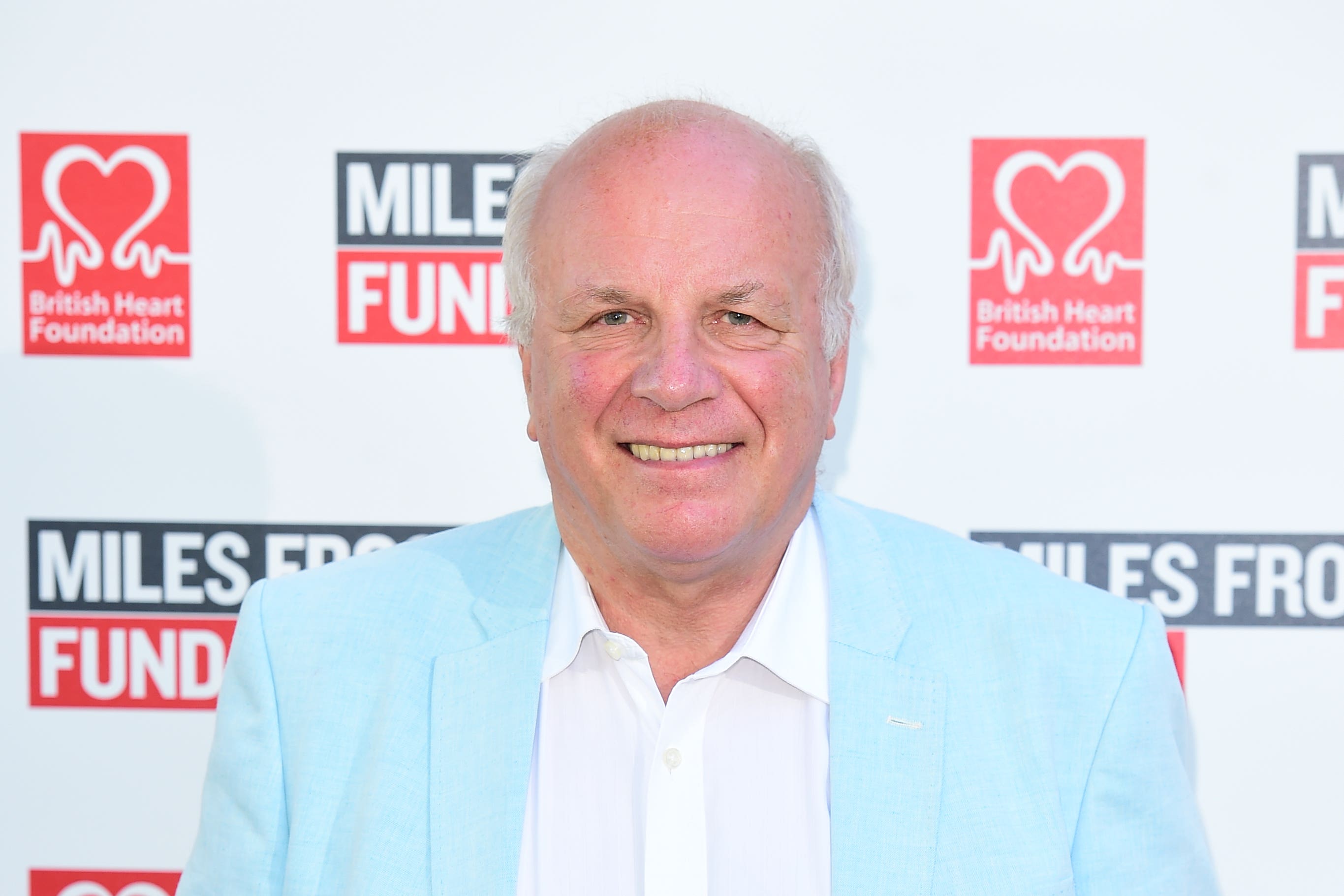Former BBC boss on Israel reporting: BBC always gets attacked in times of crisis
Greg Dyke cited the broadcaster’s coverage of the Falklands war as an example of previous criticism.

Your support helps us to tell the story
From reproductive rights to climate change to Big Tech, The Independent is on the ground when the story is developing. Whether it's investigating the financials of Elon Musk's pro-Trump PAC or producing our latest documentary, 'The A Word', which shines a light on the American women fighting for reproductive rights, we know how important it is to parse out the facts from the messaging.
At such a critical moment in US history, we need reporters on the ground. Your donation allows us to keep sending journalists to speak to both sides of the story.
The Independent is trusted by Americans across the entire political spectrum. And unlike many other quality news outlets, we choose not to lock Americans out of our reporting and analysis with paywalls. We believe quality journalism should be available to everyone, paid for by those who can afford it.
Your support makes all the difference.A former director general of the BBC has defended the corporation’s reporting, saying that the broadcaster “always gets attacked” when covering conflict.
The BBC has been criticised by senior Conservative MPs and the Israeli president over its coverage of the conflict in Israel and Gaza.
Greg Dyke told Sky News programme Sunday Morning With Trevor Phillips: “At times of crisis, the BBC always gets attacked by both sides, always, go back to Falklands.
“I seem to remember back in the Falklands (war), (Prime Minister) Mrs. (Margaret) Thatcher attacked the BBC for not saying… ‘our boys’ as opposed to British troops.
“I think (the message) for the BBC (is)… ‘Don’t lose your nerve, keep trying.”
The BBC director-general between 2000 and 2004 added that Israel ambassador’s complaints to the corporation “outnumbered everyone else” during his time.
“Israelis have always complained,” Mr Dyke added.
He also said he had not spoken to the current director general at the BBC Tim Davie to offer advice and reporting decisions are “largely in the hands of a journalist” and BBC News.
On Friday, Mr Davie met the Board of Deputies of British Jews president Marie van der Zyl and its chief executive Michael Wegier to discuss their “outrage” at Hamas being described as militants instead of terrorists.
The Jewish group said the BBC had confirmed it is no longer the corporation’s practice to call Hamas militants, but instead is describing the group as a proscribed terrorist organisation by the UK Government and others, or simply as Hamas.
A BBC spokesperson said: “For some days we had not been using ‘militant’ as a default description for Hamas, as we have been finding this a less accurate description for our audiences as the situation evolves.”
This follows Israel’s president Isaac Herzog telling the UK Prime Minister Rishi Sunak on Thursday that the way the BBC “characterises Hamas is a distortion of the facts” and there should be a “correction” issued by the broadcaster.
Earlier in the week, the corporation said an on-air correspondent had been “wrong to speculate” in the immediate aftermath of the bombing of a hospital in Gaza City.
The BBC also said the “correspondent was giving instant analysis on the ground from Jerusalem in what was a confusing and difficult story” and “did not at any point report that it was an Israeli strike”.
Hamas has blamed an Israeli air strike for the attack on Tuesday, while the Israeli military said al Ahli hospital was instead hit by a rocket misfired by Palestinian militants.
Mr Dyke also told the Sky News programme: “You’d be looking all the time for ‘did we make a mistake? Can we make that clear?’
“And mistakes will get made, there’s no doubt about it, in a story that is moving at an incredible rate.”
The former chairman of the Football Association (FA) also criticised the Wembley arch not being lit-up following Hamas attacking Israel.
He said: “I thought the FA made a mistake.
“I think they should have just lit up the arch, not because they were supporting or not supporting Israel, but they should have come out in support of the people who had suffered those terrible atrocities.”
Mr Dyke also said in the past, what he called “other acts of terrorism”, saw the arch illuminated.
On Thursday, FA chief executive Mark Bullingham accepted the “hurt” caused to the Jewish community by the FA’s decision not to light the arch in the colours of the Israeli flag.
“This week has made us question whether we should light the arch and when, and we’ll be reviewing that in the coming weeks,” Mr Bullingham also said at the Leaders Week conference at Twickenham.
Culture Secretary Lucy Frazer has express concern about the BBC’s decision not to call Hamas terrorists, without attribution, and criticised the FA for not lighting the arch.